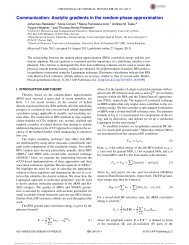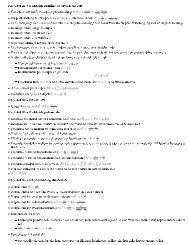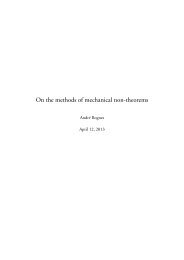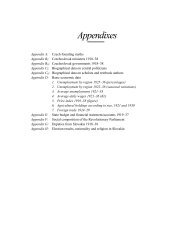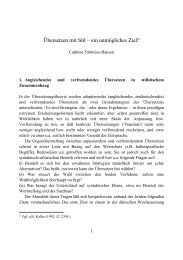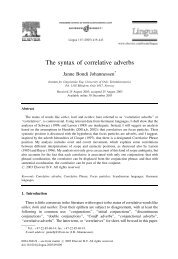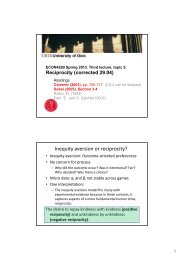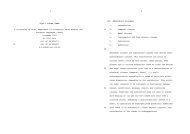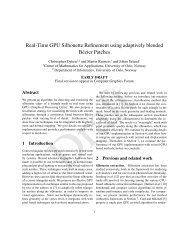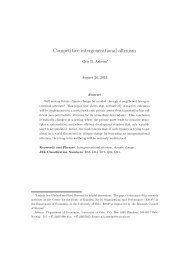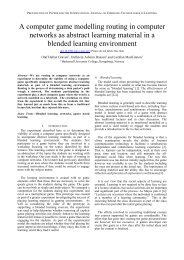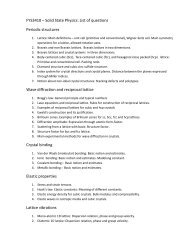Clausal architecture and movement verbs in Malagasy
Clausal architecture and movement verbs in Malagasy
Clausal architecture and movement verbs in Malagasy
You also want an ePaper? Increase the reach of your titles
YUMPU automatically turns print PDFs into web optimized ePapers that Google loves.
<strong>Clausal</strong> <strong>architecture</strong> <strong>in</strong> <strong>Malagasy</strong><br />
the active voice <strong>and</strong> yet the sequence is perfectly grammatical.<br />
On the surface, it looks as though we are deal<strong>in</strong>g <strong>in</strong> both cases with examples of<br />
adjunction s<strong>in</strong>ce the constituent t-any Antsirabe ‘perf-at/to Antsirabe’ can be left<br />
out of each sentence without affect<strong>in</strong>g the grammaticality of the output: this is<br />
obvious <strong>in</strong> (2), where the oblique constituent has been omitted. As far as sentence<br />
(10) is concerned, we can have<br />
(35) N-i 15 -petraka t-any Antsirabe i Paoly.<br />
Past-Prf-stay Perf-at Antsirabe Art Paul<br />
‘Paul stayed at Antsirabe.’<br />
(36) N-i-petraka i Paoly.<br />
Past-Prf-stay Art Paul<br />
‘Paul sat down/Paul was sitt<strong>in</strong>g.’<br />
where <strong>in</strong> (35) the oblique constituent t-any Antsirabe ‘perf-at/to Antsirabe’ shows<br />
up <strong>in</strong> its <strong>in</strong>itial position to the right of the higher verb whereas <strong>in</strong> (36), the<br />
constituent has been omitted altogether <strong>and</strong> this does not affect <strong>in</strong> any way the<br />
grammaticality of the sequence. Note the substantial difference <strong>in</strong> mean<strong>in</strong>g shown<br />
for (35) <strong>and</strong> for (36), which may render the relationship between the two<br />
predicates rather implausible at first sight: <strong>in</strong> (35), the verb n-ipetraka can only<br />
have a stative mean<strong>in</strong>g, whereas (36) n-ipetraka is ambiguous between a stative<br />
mean<strong>in</strong>g, ‘Paul was sitt<strong>in</strong>g’, <strong>and</strong> a deliberate activity k<strong>in</strong>d of mean<strong>in</strong>g, ‘Paul sat<br />
down.’ However, <strong>in</strong> the former <strong>in</strong>terpretation, there is little doubt that the oblique<br />
constituent can be added to the clause as an option.<br />
To supplement the above analysis of the oblique constituent <strong>in</strong> (8) <strong>and</strong> <strong>in</strong> (10)<br />
respectively, we will note that the higher verb n-<strong>and</strong>eha ‘went’ <strong>in</strong> (8) is a Control<br />
predicate, whereas the higher verb n-i-petraka ‘stayed, lived’ <strong>in</strong> (10) is not a<br />
Control predicate. As such, the oblique constituent <strong>in</strong> the first is strictly<br />
subcategorized by the higher verb, given that the thematic role encoded <strong>in</strong> the<br />
directional oblique is required by the Movement verb. By contrast, the stative<br />
verb n-i-petraka ‘stayed’ does not strictly subcategorize for a directional oblique<br />
at all. Therefore, <strong>in</strong> (8) the directional oblique is an argument of the higher verb,<br />
whereas <strong>in</strong> (10) it is a mere adjunct.<br />
The sharp contrast <strong>in</strong> behavior between an adjunct <strong>and</strong> an argument of the higher<br />
verb can be illustrated thus:<br />
15 In this <strong>in</strong>stance, the prefix i denotes a stative predicate, i.e., not <strong>in</strong>volv<strong>in</strong>g a deliberate k<strong>in</strong>d of<br />
activity; whereas <strong>in</strong> the subsequent (36), the same prefix refers to a deliberate k<strong>in</strong>d of activity.<br />
This is one reason why it is imperative to have a classification of <strong>Malagasy</strong> <strong>verbs</strong> of the type<br />
proposed <strong>in</strong> R<strong>and</strong>riamasimanana (1986).<br />
–523–




